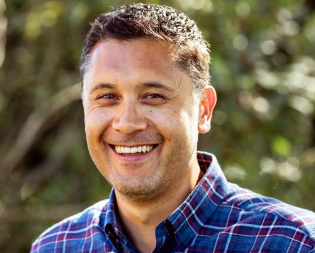Why do you think a number of iwi organisations have created roles for punenga a ture (legal counsel) over the past few years?
Natasha Strong is General Counsel at Ngāti Whātua Ōrākei based in Tāmaki Makaurau/Auckland. She says: “Iwi organisations are just like other organisations in that they recognise the value of an in-house legal function as they grow in size and complexity. Iwi organisations look to each other as well as to other sectors of the economy for best practice so it makes sense that our organisations are increasingly creating in-house legal functions. As in-house lawyers, we know the value we bring to our organisations and iwi organisations are no different in this respect. I think of it as in-house 101 - our deep understanding of our organisation and what makes it tick (its values, drivers, and political dynamic) perfectly positions us to provide cost-effective right-sized legal support when and where it’s needed - what organisation wouldn’t love that?”

Gwendoline Keel is Legal Advisor for Tainui based in Kirikiriroa/Hamilton. She says: “Some post-settlement governance entities (PSGEs) are reaching significant maturity and scale now. It follows that their legal needs have matured and scaled up, too. For some it’s now faster, cheaper, and a lot more efficient to have an experienced lawyer “inside” the organisation managing the legal function. In-house counsel can also see and solve issues that might not otherwise be addressed, perhaps because they are legal process issues, training needs, or relatively minor, rather than transactional in nature (by providing a general smoothing out process across the legal function).”

Riki Kotua is Legal Counsel for Wakatū Incorporation based in Whakatū/Nelson. He says: “From my perspective, a Māori organisation can benefit greatly from having a legal counsel that operates across the business and is embedded in its culture and values, as opposed to outside counsel providing ad hoc advice. That is not to say there isn’t a place for outside counsel, or that they don’t add value. Wakatū has very competent outside counsel, including some who have previously worked directly for the incorporation. Where in-house legal counsel also shares whakapapa links to the organisation concerned, the role can also represent a tangible commitment to building capacity and investing in our people."

What are your thoughts about the intersection of your role and tikanga Māori and/or Māori world view?
Natasha: “Te ao Māori imbues everything we do at Ngāti Whātua Ōrākei and we actively incorporate it within our organisation, our activities,and our stakeholder relationships. This can be challenging because our structure is a construct of Pākehā law and so it sometimes feels as though we are “bolting on” te ao Māori rather than it being a central pou. It’s been a learning curve for me to consider tikanga (or “Māori L-O-R-E” as many Ngāti Whātua Ōrākei kaumatua call it to distinguish it from “Pākehā L-A-W”), and the depth it brings to matters alongside the usual legal, commercial, and reputational etc. imperitives you manage as an in-house lawyer. I see my role as an enabler – making sure te ao Māori is pulled into centre focus across all areas of my remit.”
Gwendoline: “We must all understand the role that tikanga Maaori plays in the way that we as New Zealand lawyers interpret and apply New Zealand law, and when thinking about client needs. Normalising a Maori worldview is really important - it’s not “niche” or “specialist”, just appropriate. Learning about this kaupapa is the most interesting and rewarding part of the role.”
Riki: “At Wakatū there is a recognition that we need to achieve good outcomes not just for this generation but for generations to come. We must always keep our purpose in mind – to preserve and enhance our taonga for the benefit of present and future generations. As an owner myself, I feel a very strong commitment to our owners, past, present and future. That creates a different emphasis and onus in the work that we do and means that I am driven by a lot of factors that are not simply about profit or personal advancement. I have also been heartened to experience the organisation living by tikanga Māori values. This was evident right from the beginning. When I started at the incorporation I was welcomed home and the feeling of whanaungatanga and manaakitanga was very strong. I try to be guided by these values in my role every day.”
What do you see as the biggest challenges for your organisation in the months ahead and what will your role involve in helping to meet those challenges?
Natasha: “We are well placed to meet and manage the risks of the COVID-19 crisis to our organisation and to support our whānau through the recession ahead and so, whilst the nature and pace of my mahi may increase, this doesn’t seem to me to be too much of a challenge. As in-house lawyers, we are used to heavy workloads, doing more with less, and managing a variety of different types of mahi on a daily basis! Personally, I think the biggest challenge for Ngāti Whātua Ōrākei will be in positioning ourselves to grab new opportunities as they hurtle past and to keep our momentum going in reimagining our new normal, for ourselves as an organisation as well as for Tāmaki Makaurau and, more generally, Aotearoa.”
Gwendoline: “During and post-COVID, new opportunities and risks have been emerging so quickly. Working at pace, sustainably and within budgets, is going to be a challenge for everyone in Aotearoa. We’ll be working hard to find efficiencies and leverage our resources well, while trying to keep pace with our amazing staff/kaimahi. Being flexible with our skill set is also important – all our lawyers have interesting “back stories” and can do lots of useful things!”
Riki: “Like most organisations, navigating the circumstances post-Covid-19 and the associated government reforms will continue to raise significant challenges.
An ongoing challenge, which the post-Covid-19 context may make more difficult, is how we carry out our fundamental role as kaitiaki while ensuring the future commercial success of our businesses. In this environment there will be great premium on developing innovative and practical solutions while ensuring that legal and policy settings reflect our underlying values. For us it is key that our actions are aligned with the expectations of our people, our tikanga, and our role within our community and region. We all must be active in ensuring our environment is healthy, able to support our way of life, native taonga species and our businesses.
Another significant challenge is the continued fight for justice following the 2017 Supreme Court decision in the case of Proprietors of Wakatū & Others v Attorney-General. The Supreme Court determined that the Crown owes a fiduciary duty to our families, the Māori customary owners of the Nelson Tenths’ lands and occupation lands in Whakatū, Tasman and Mōhua (Golden Bay), arising from its unfulfilled undertaking to reserve and protect 15,100 acres of Tenths’ land, as well as our papakāinga, cultivation and wāhi tapu lands.
Over the past three years our team has been busy working with the Crown to resolve these proceedings. The next stage is a High Court hearing in August, which will focus on preventing any further land loss in our region so that the Crown preserves the ability to meet its obligations as trustee to the owners of the Nelson Tenths. We are determined to continue our pursuit for justice.”